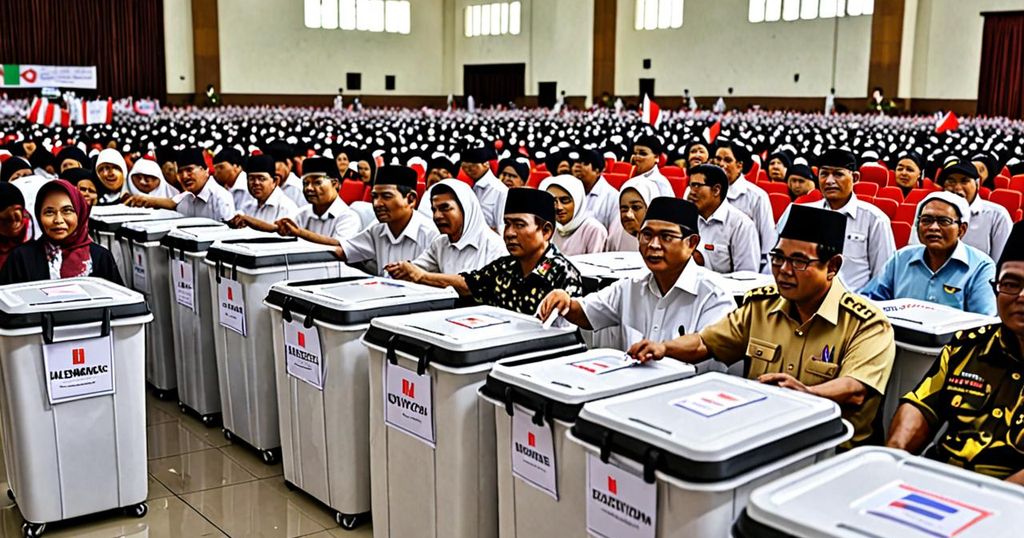Indonesia, recognized as the world’s third-largest democracy, is poised to conduct its presidential and legislative elections, marking the fifth occurrence since the implementation of democratic reforms in 1998. The nation, encompassing 17,000 islands and a population exceeding 270 million individuals from a diverse array of ethnic backgrounds, plays a pivotal role in upholding democracy in Southeast Asia, a region distinguished by political diversity and robust economic activity.
The forthcoming election, scheduled for Wednesday, will determine the successor to President Joko Widodo, widely known as Jokowi, who is currently in the final phase of his tenure. The competition features current Defense Minister Prabowo Subianto, former governors Anies Baswedan and Ganjar Pranowo, resulting in a three-way contest. Should no candidate secure more than 50% of the votes, a runoff between the top two contenders has been set for June 26.
The significance of this electoral event extends to the breadth of candidates contending for national, regional, and district parliamentary positions. With approximately 10,000 candidates from 18 political parties participating in the competition, Indonesia’s diverse political landscape presents a democratic spectacle. Moreover, political parties are mandated to incorporate women in every third position in their party list to ensure gender inclusivity in the electoral process.
With a staggering 205 million eligible voters, Indonesia’s election encompasses citizens aged 17 and above, with the exception of members of the police and military. Candidates have fervently targeted the youth demographic, as over half of registered voters are under the age of 40, with a third falling under the age of 30. A substantial effort through social media outreach has been initiated to engage these younger voters.
The strategic importance of Indonesia’s election cannot be overstated. Positioned between the Indian and Pacific oceans and boasting the title of the world’s largest island chain, the country’s political stability is fundamentally imperative to maintaining peace and order in the region. Additionally, as a member of crucial international organizations, including the United Nations, the G20, and ASEAN, Indonesia’s influence in global affairs holds significant weight.
Amid the election, critiques have surfaced regarding President Jokowi’s involvement in the electoral process. Concerns have been raised over Jokowi’s perceived lack of neutrality, as he has openly backed a frontrunner who has nominated his own son as a running mate. This has sparked unease in civil society, instigating discussions about democratic standards and ethics in Indonesian politics.
As the election draws near, polling institutions have projected the likelihood of a runoff, given the current three-way race. However, the impact of undecided voters on the ultimate results remains uncertain. The election will ultimately determine the country’s new leader, who will be inaugurated on Oct. 20 and entrusted with forming a Cabinet within two weeks.
While the official vote-counting process may extend up to 35 days to be concluded, early poll results known as “quick counts” are expected to offer a dependable indication of the final outcome. Observers remain vigilant of this phase of the process as the nation anticipates the emergence of Indonesia’s next president.

Leave a Reply